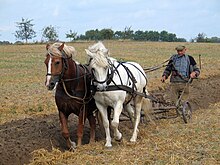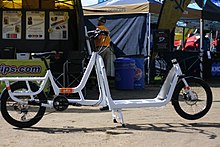
A firearm is any type of gun that uses an explosive charge and is designed to be readily carried and used by an individual. The term is legally defined further in different countries.

"Do it yourself" ("DIY") is the method of building, modifying, or repairing things by oneself without the direct aid of professionals or certified experts. Academic research has described DIY as behaviors where "individuals use raw and semi-raw materials and parts to produce, transform, or reconstruct material possessions, including those drawn from the natural environment ". DIY behavior can be triggered by various motivations previously categorized as marketplace motivations, and identity enhancement.

A spinning wheel is a device for spinning thread or yarn from fibres. It was fundamental to the cotton textile industry prior to the Industrial Revolution. It laid the foundations for later machinery such as the spinning jenny and spinning frame, which displaced the spinning wheel during the Industrial Revolution.

Innovation is the practical implementation of ideas that result in the introduction of new goods or services or improvement in offering goods or services. ISO TC 279 in the standard ISO 56000:2020 defines innovation as "a new or changed entity, realizing or redistributing value". Others have different definitions; a common element in the definitions is a focus on newness, improvement, and spread of ideas or technologies.
NewTek, Inc., is a San Antonio, Texas–based hardware and software company that produces live and post-production video tools and visual imaging software for personal computers. The company was founded in 1985 in Topeka, Kansas, United States, by Tim Jenison and Paul Montgomery. On April 1, 2019, it was announced that NewTek would be acquired by Vizrt.

Technophobia, also known as technofear, is the fear or dislike of, or discomfort with, advanced technology or complex devices, especially personal computers, smartphones, and tablet computers. Although there are numerous interpretations of technophobia, they become more complex as technology continues to evolve. The term is generally used in the sense of an irrational fear, but others contend fears are justified. It is the opposite of technophilia.

Appropriate technology is a movement encompassing technological choice and application that is small-scale, affordable by locals, decentralized, labor-intensive, energy-efficient, environmentally sustainable, and locally autonomous. It was originally articulated as intermediate technology by the economist Ernst Friedrich "Fritz" Schumacher in his work Small Is Beautiful. Both Schumacher and many modern-day proponents of appropriate technology also emphasize the technology as people-centered.
An actuator is a component of a machine that produces force, torque, or displacement, usually in a controlled way, when an electrical, pneumatic or hydraulic input is supplied to it in a system. An actuator converts such an input signal into the required form of mechanical energy. It is a type of transducer. In simple terms, it is a "mover".
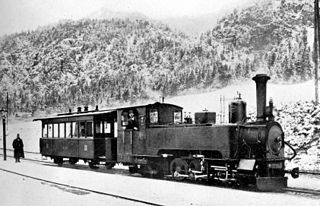
The Second Industrial Revolution, also known as the Technological Revolution, was a phase of rapid scientific discovery, standardisation, mass production and industrialisation from the late 19th century into the early 20th century. The First Industrial Revolution, which ended in the middle of the 19th century, was punctuated by a slowdown in important inventions before the Second Industrial Revolution in 1870. Though a number of its events can be traced to earlier innovations in manufacturing, such as the establishment of a machine tool industry, the development of methods for manufacturing interchangeable parts, as well as the invention of the Bessemer process and open hearth furnace to produce steel, the Second Industrial Revolution is generally dated between 1870 and 1914.

High technology, also known as advanced technology or exotechnology, is technology that is at the cutting edge: the highest form of technology available. It can be defined as either the most complex or the newest technology on the market. The opposite of high tech is low technology, referring to simple, often traditional or mechanical technology; for example, a slide rule is a low-tech calculating device. When high tech becomes old, it becomes low tech, for example vacuum tube electronics. Further, high tech is related to the concept of mid-tech, that is a balance between the two opposite extreme qualities of low-tech and high-tech. Mid-tech could be understood as an inclusive middle that combines the efficiency and versatility of digital/automated technology with low-tech's potential for autonomy and resilience.

The open-design movement involves the development of physical products, machines and systems through use of publicly shared design information. This includes the making of both free and open-source software (FOSS) as well as open-source hardware. The process is generally facilitated by the Internet and often performed without monetary compensation. The goals and philosophy of the movement are identical to that of the open-source movement, but are implemented for the development of physical products rather than software. Open design is a form of co-creation, where the final product is designed by the users, rather than an external stakeholder such as a private company.
Neo-Luddism or new Luddism is a philosophy opposing many forms of modern technology. The term Luddite is generally used as a pejorative applied to people showing technophobic leanings. The name is based on the historical legacy of the English Luddites, who were active between 1811 and 1817. While the original Luddites were mostly concerned with the economic implications of improving technology in regards to industrialization, Neo-Luddites tend to have a broader and more holistic distrust of technological improvement.
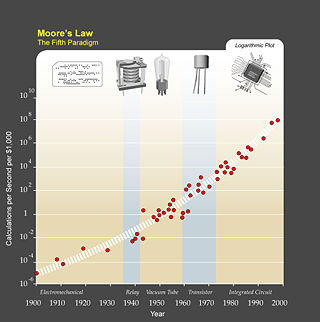
Futures studies, futures research, futurism, or futurology is the systematic, interdisciplinary and holistic study of social/technological advancement, and other environmental trends; often for the purpose of exploring how people will live and work in the future. Predictive techniques, such as forecasting, can be applied, but contemporary futures studies scholars emphasize the importance of systematically exploring alternatives. In general, it can be considered as a branch of the social sciences and an extension to the field of history. Futures studies seeks to understand what is likely to continue and what could plausibly change. Part of the discipline thus seeks a systematic and pattern-based understanding of past and present, and to explore the possibility of future events and trends.
A business incubator is an organization that helps startup companies and individual entrepreneurs to develop their businesses by providing a fullscale range of services, starting with management training and office space, and ending with venture capital financing. The National Business Incubation Association (NBIA) defines business incubators as a catalyst tool for either regional or national economic development. NBIA categorizes its members' incubators by the following five incubator types: academic institutions; non-profit development corporations; for-profit property development ventures; venture capital firms, and a combination of the above.

Image stabilization (IS) is a family of techniques that reduce blurring associated with the motion of a camera or other imaging device during exposure.
The following outline is provided as an overview of and topical guide to technology:
The Gerschenkron effect, developed by Alexander Gerschenkron, claims that changing the base year for an index determines the growth rate of the index. This effect is applicable only to aggregation method using reference price structure or reference volume structure. However, if production is measured by "real" tearms, this effect does not exist.
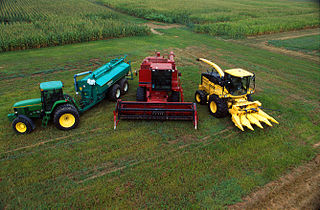
Agricultural machinery relates to the mechanical structures and devices used in farming or other agriculture. There are many types of such equipment, from hand tools and power tools to tractors and the countless kinds of farm implements that they tow or operate. Diverse arrays of equipment are used in both organic and nonorganic farming. Especially since the advent of mechanised agriculture, agricultural machinery is an indispensable part of how the world is fed. Agricultural machinery can be regarded as part of wider agricultural automation technologies, which includes the more advanced digital equipment and robotics. While agricultural robots have the potential to automate the three key steps involved in any agricultural operation, conventional motorized machinery is used principally to automate only the performing step where diagnosis and decision-making are conducted by humans based on observations and experience.
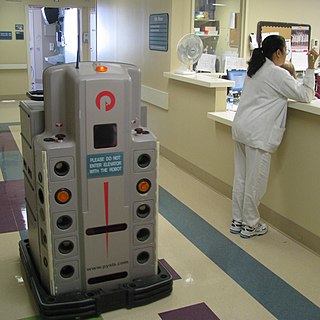
Technological unemployment is the loss of jobs caused by technological change. It is a key type of structural unemployment. Technological change typically includes the introduction of labour-saving "mechanical-muscle" machines or more efficient "mechanical-mind" processes (automation), and humans' role in these processes are minimized. Just as horses were gradually made obsolete as transport by the automobile and as labourer by the tractor, humans' jobs have also been affected throughout modern history. Historical examples include artisan weavers reduced to poverty after the introduction of mechanized looms. During World War II, Alan Turing's bombe machine compressed and decoded thousands of man-years worth of encrypted data in a matter of hours. A contemporary example of technological unemployment is the displacement of retail cashiers by self-service tills and cashierless stores.
Tekpix was a line of technology products from the Brazilian company Tecnomania. It became best known for its multifunctional cameras, which started being sold in the early 2000s, but stopped in 2013 due to the growing popularity of smartphones. The Tekpix TV announcer, "Juarez from Tekpix," became a meme for his catchphrases, such as "Let's talk about good things," and for claiming that the Tekpix was the best-selling camera in Brazil; however, this was never proven. The line also included an Android tablet, the i-TVWF7x-4.0, released in 2013. The products received negative reviews regarding low quality and high price, with several comparisons being made with other products of lower value and better quality by technology sites.



